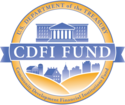Paying for Your Child’s Higher Education
Most parents assume their children will complete high school and attend a 2- or 4-year college. As higher education costs continue rising, it becomes even more important to plan ahead and determine how your family will pay for it. Ideally, you should start saving as soon as a child is born.
Begin by saving small amounts each month. “Even if it’s $25 or $50, it’s the act of saving consistently that counts,” says Joseph Orsolini, president of College Aid Planners Inc., Glen Ellyn, Ill. “You’ll be surprised how it builds over time.”
Ways to Save
Every state offers tax-advantaged 529 plans, which families can use to save for future higher-education costs. Plan managers invest the funds you contribute and, when you withdraw the money to pay for educational expenses, the earnings aren’t subject to federal taxes. Many states exempt the funds from state taxes, too, and many have minimum monthly contributions as low as $15.
Other options for saving are contributing to Roth IRAs (individual retirement accounts) and Coverdell ESAs (education savings accounts).
Roth IRAs can be good for parents concerned that they’re not saving enough for retirement, but who also want to help with their kids’ education, according to Jean Chatzky, author of “Money Rules.” “If you put money in a Roth IRA, when your kids reach college age you can decide if you’ll use it for college or retirement.”
If you’d like more information about Roth IRAs, talk to one of our representative here at R1CU.
Finding Funds
Seek financial aid if you need additional funding. The first step is completing the Free Application for Federal Student Aid (FAFSA) at the beginning of your child’s senior year of high school. You can apply online at fafsa.ed.gov.
Colleges you apply to will put together financial aid packages and send you award letters. They may include federal need-based grants, called Pell grants, or low-cost, need-based federal Perkins loans. They also may include federal Stafford loans, which have slightly higher interest rates. Schools may also offer need- or merit-based grants.
In addition to your savings, look for scholarships and grants. The guidance counseling office at your local high school can provide information about them. If that’s not enough, use federal loans, which you and your child don’t need to repay until after graduation.
If you’re still short of funds, apply personal loans. Resource One offers affordable rates on personal loans and can help you figure if this is the best option for you. Contact us today to learn more at 800-375-3674
SOURCES: Copyright 2017 Credit Union National Association Inc. Information subject to change without notice. For use with members of a single credit union. All other rights reserved.





